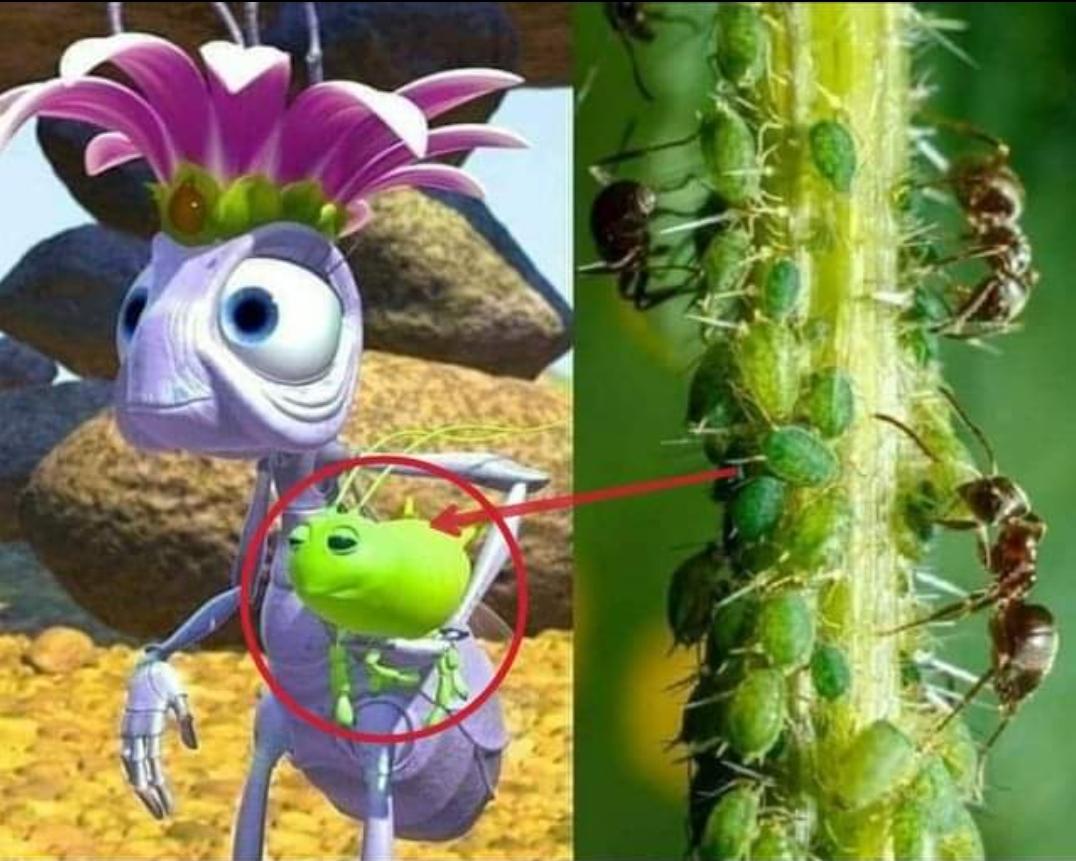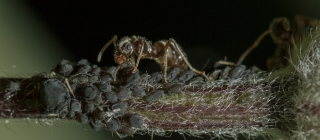@LillyPip isn’t it cool!
But if that was a TIL for you, just wait until you hear about how Ants have hospitals!
Ant hills can also have any infestations, as in a smaller species of ants (often thief ants) stealing the resources of the bigger ants.
@Tessellecta yes! And there are also ants who steal the children of other species of ant and enslave them.
Ants are so interesting.
This is so frickin’ cool. I’ve been learning the occasional interesting fact about ants for nigh on 30 years and here I am, still finding out cool things about these amazing little creatures.
@Transcendant I know, me too! I’ve been a fan of them ever since I was a kid but I still find out more stuff every now and again.
Yeah, although we generally don’t drink what comes out of a cow’s ass.
Right, just its tits
What would you rather suck on, a tit or an ass?
That depends, is it a bugs tit? Or a mammals ass?
Because sugar comes out of bug ass, which is far different than mammal ass. And bug tit is a useless endeavor, unlike the mammal.
I’m pretty sure bugs don’t have tits…
All the more a waste of time to suckle
Dont ask me that question
Reminds me of A Bug’s Life

Dealing with this is so annoying. Not because it’s difficult to handle, though it is, but because I have to exterminate multiple Argentine ant colonies in rapid succession despite loving ants. Please just let me garden in peace, ants. :(
Ugh after having them come into my house once… I feel you. I love you, little ant bros, just not in my house!
Could you give them something that doesn’t harm the plants, that might lure them where they won’t bother you, and that won’t make the problem worse in a different way?
Maybe they’d like something you normally throw away in relatively small quantities that won’t attract something worse or poison anything?
e: disclaimer: IANAG. I am terrible with plants.
Argentine ants are altogether too numerous to meaningfully distract or redirect for long. If there’s a new ____ source, they’ll find a way to dive in and then produce a sister colony like 40 feet away. My options amount to either spreading poison, thereby killing a non-negligible sum of rabbits and neighborhood dogs, or killing the ants. I can always grow poisonous or undesirable veggies, but I can only take so many years of mustard, parsley, garlic, and tomatoes.
little bastards move them everywhere. and farm a wide range of aphids and scale bugs.
Leaf cutter ant farm fungus like we farm veggies too.
Kinda makes you rethink how we typically define ‘society’.
Like it’s far more fundamental than we think, and we very narrowly define it by too complex criteria. And we’re too invested in making sure that definition stays narrow enough that we can justify harming others.
(Sorry, I’d normally put that in a slightly more cheerful way, but I’m just so tired.)
Humans don’t just wake up one day and start farming fungi their whole lives and never stop or reproduce because something in their brain constantly tells them to. There’s some profound difference between ant “society” and human society.
And, youre aware of the depth of ant cognition… How? Exactly?
Insect cognition has been a researched topic for some time. Most people tend to reduce them to some robotic form of being, I think that’s not the case as does more modern research. They are capable of learning, bumblebees have been observed displaying playful behaviour (or at least something that resembles it). However all evidence still suggests that their behaviour is very much governed by instincts and can be predicted quite well. There are no known intellectual abilities of insects that come close to those of somewhat intelligent vertebrates. Humans and primates are in another category altogether.
And then there are the naked mole rats…
The only eusocial mammal, what about it?
@Annoyed_Crabby
@TropicalDingdongI lived in the PI for a couple years growing up and accidentally disturbing a tree nest is about as much fun as hitting a Georgia fire ant hill with a riding mower.
There are two wolves in this comment section.
One says: Animals are so cool!
The other one is like: But people are superior!
This is backwards. The aphids hire the ants as bodyguards.
Reminds me of “Children of Time” by Adrian Tchaikovsky that I am reading now
What the hell is this title? Isn’t the whole article describing the ant-aphid relationship while emphatizing that we can’t really compare it in human terms?
Brings back ancient memories of the movie Ant Bully








